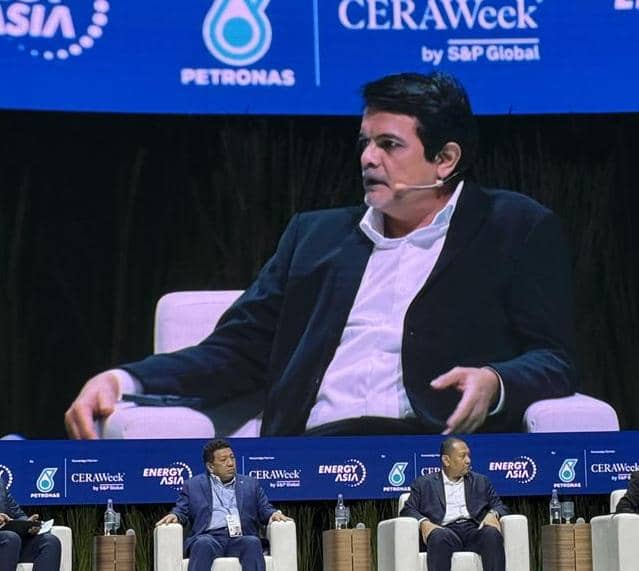KOTA KINABALU: The Energy Asia 2025 conference in Kuala Lumpur provided Sabah with a platform to highlight its commitment to the energy transition, showcasing the state’s renewable energy ambitions and policy leadership, particularly in the power sector.
During the conference, Chief Executive Officer (CEO) of the Energy Commission of Sabah, Datuk Ir Abdul Nasser Abdul Wahid, outlined efforts by Sabah, Sarawak, and Peninsular Malaysia to harmonise clean energy policies, targets, and infrastructure planning.
The aim, he said, was to establish a more cohesive and efficient approach to nationwide power sector decarbonisation.
In a session titled “Energising Malaysia’s Growth”, Abdul Nasser joined a panel of national energy leaders, including Tenaga Nasional Berhad President and CEO Datuk Ir Megat Jalaluddin Megat Hassan, Sustainable Energy Development Authority Malaysia CEO Datuk Hamzah Hussin, and Sarawak Energy Group Chief Operating Officer Ir James Ung Sing Kwong.
The four leaders discussed how the region’s journey toward decarbonisation must not compromise energy security, reliability, or affordability, which are key priorities for emerging and developed economies.
Speaking to the media on the sidelines of the conference, Abdul Nasser said the opportunity to speak at Energy Asia was valuable, as it allowed him to showcase Sabah’s strengths and offerings in the renewable energy space.
“A key strength we want to highlight is our flexibility and efficiency in decision-making, which enables faster and more coordinated action,” he said.
“We also take pride in our business-friendly approach. Sabah is open and welcoming to investors, and we ensure that our processes are clear, transparent, and supportive of sustainable growth.”
He added that, beyond its renewable energy resources, Sabah aimed to support Malaysia’s broader national agenda by contributing meaningfully to the country’s energy transition goals.Another focus of the session, he said, was the need to build a resilient and interconnected energy network.
Given its strategic geographical location, Sabah was well-positioned to serve as a central hub for regional interconnection between Kalimantan, Sarawak, Brunei, and the Philippines, strengthening both regional energy security and cross-border collaboration, he added.
Hosted by PETRONAS, in collaboration with Knowledge Partner CERAWeek by S&P Global, Energy Asia 2025 was held from 16 to 18 June and concluded with a strong call to accelerate an energy transition that is just, inclusive, and grounded in practical solutions.
The event brought together more than 4,000 participants from 60 countries and 38 sectors, including policymakers, investors, innovators, and energy professions, to exchange ideas.


